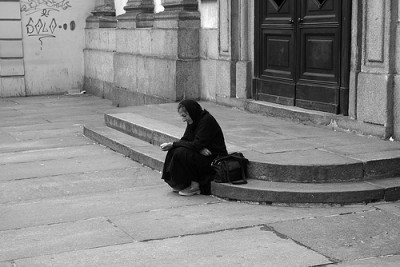An introduction to the new LoyarBurok series titled Lessons from Legal Aid (LLA) with the first lesson as well as discussions about an application to sue or defend as a pauper and a problem with sentencing on a guilty plea.
Since the commencement of my practice, I have been a passionate supporter of the legal aid program run by the Bar Council. I think it offers the perfect opportunity for both fresh and experienced lawyers to hone their legal skills and broaden their social engagement whilst at the same time helping those financially and legally less fortunate than us. It is the most convenient way for us as lawyers to give back to society while improving our own abilities. Since I have spoken and written about this at length elsewhere, I do not propose to do so again save to express my puzzlement over why so few lawyers and employers realize this. In my firm, I am currently experimenting on the best way to use legal aid cases as an integral part to the development of a lawyer’s skill set and exprience.
What I wish to discuss in this series is some of the lessons and events I have experienced and learned from conducting to conclusion over 30 pro bono cases over the last 10 years of practice taken principally from the Bar Council Legal Aid Council (Kuala Lumpur) (after this referred to as it is affectionately known as, ‘the LAC’). The cases I took up were mostly of criminal variety (around 65% of the total work from LAC) although I have taken up those occasional civil cases that somehow find their way into the LAC (around 25% of the work from LAC), with the occasional telephone consultancy (around 10% of the work from LAC). Sometimes I would help out on a pro bono case that was assigned to a friend. It’s more fun doing the case with company. Aside from the actual court cases done, I would participate in legal outreach clinics in more rural areas, giving talks to both students and the general public, fund raising and training sessions for students. The growing sophistication of the impecunious needs is positive in the sense that it allows more opportunities for lawyers to participate in whatever capacity we can. So you do not have to be a court going lawyer to be relevant to the LAC initiatives.
I should declare at this point that the views are entirely my own and drawn from my own limited experience in this area. Though I have practised in the criminal sphere quite consistently throughout my practise and continue to do so, it is restricted as compared to a hardened criminal practitioner who goes to criminal courts day in day out. Some no doubt may have a vastly different experience. Though it is not my main area of practice, I derive immense enjoyment from learning, thinking about legal issues and practising in the criminal sphere aside from allowing me opportunities to keep my trial advocacy sharp.
It also makes for a great yarn at social events when I am inevitably asked what interesting case I have been up to. I usually have few civil or corporate litigation cases of interest to the lay person. I often ditch the sexy constitutional arguments and the finer points of a company’s liquidation process because I see their eyes glaze over after I spend the first 3 minutes explaining the law where this purportedly exciting development takes place. A criminal case is immediately grasped by a lot of people. You don’t have to explain how it works. You just get straight into the story.
The ‘bulk’ of my criminal work came and still comes from the Bar Council Legal Aid Centre (Kuala Lumpur). It is the place to go if you hunger for criminal action and have no clients to defend. The centre is always on the lookout for new talent to take up cases, so don’t be shy. The volunteer list offers a tasty palette of cases from firearm offences to gang robberies to rape and sodomy to the evergreen drug, theft, possession of stolen goods, and even murder (but that’s if you sign on the assigned counsel list for capital offence cases). There is a wide variety of cases to cut one’s teeth on and I recommend sampling most on offer. For those starting out, I advise sticking to the Magistrates for the first few. My area of interest is for the less emotionally charged cases such as firearm offences, property and bodily harm or injury offences, fatalities and the ones I have attended to most – drug offences.
The lessons learned are not really legal but rather the insights I have gained about the LAC, its clients, their predicament, and more broadly, life. May you find as much enjoyment in them as I have in experiencing and writing about it.
Lesson 1: Though I am not an UMNO crony I am fortunate and privileged
There is one fact that I cannot avoid when I do legal aid cases: that I am comparatively very fortunate and privileged to live the life I do. I have family, friends and people who care about, trust and love me. I have a home and can move around at will. I had a great educational experience both locally and overseas. I have enough of the necessities of life to be able to indulge myself and those I care for. I have a life where I have some measure of control over. I generally enjoy my line of profession (although for how long more, I am not sure). Even without anything else more, I consider myself fortunate to be given the privilege of such a life.
All this means, I am in a position to help others less fortunate than myself. Doing legal aid cases brings this in to sharper focus and comparison. Doing these cases and meeting legal aid clients who have so little serves as a powerful reminder that I must and cannot take these things for granted though it is very easy to do so because I have been blessed with them for most of my life. It reminds me that the wide variety of people and lifestyles outside of my small and sheltered social circle and that I cannot judge everybody by my standards.
I once had a client so poor she couldn’t afford the bus fare down from Klang to Kuala Lumpur for an appointment. I later realized that the first and only time she went to the centre was a huge effort for her. So poor she rented a small one-bedroom apartment in some low cost in Klang. So poor she was on charity from the Baitulmal and was a registered charity case with them. So poor you called her neighbor if you had to speak to her because she couldn’t afford the phone. But she took care of two kids despite that. Husband left her after the second child. Now the amazing thing was that despite all this, somehow her name had been registered as a company director of this company that had failed to pay the employer EPF contributions to the tune of about RM 40,000+ and EPF had entered judgment against her for it. I received her brief to set the judgment aside.

Though she disappeared without a trace before I could start applying to set aside the judgment, her case was invaluable because it gave me the opportunity to learn how to apply to sue or defend as a pauper pursuant to Order 15 r 18 Rules of the High Court 1980 and as a poor person under Order 9A of the Subordinate Court Rules 1980. Necessity truly is the mother of invention (or at least compels one to take a closer look at the procedural rules). I had to scour for a way for her to get access to justice simply because she was too poor.
The LAC does not provide financial assistance to its clients, only legal assistance. If she couldn’t afford the bus fare from Klang to KL, she certainly could not afford to file an application, never mind affirm an affidavit (it costs RM 4.00 per affirmation). It is moments like these that prompt me to consider issues of the cost of access to justice and how the government has done nothing to meaningfully address it despite setting up a Biro Bantuan Guaman (‘The Legal Aid Bureau’). More on this some other time.
Returning to the mains, this application is worth knowing if you conduct civil matters for the financially impecunious. The significance of being admitted as a pauper or person is that firstly, you do not pay any court fees for filing; secondly, no order for costs will be made against you but by that same token you cannot receive costs from the court other than court fees and out of pocket expenses incurred.
Then there was the case of Kelantanese teenager whose parents abandoned him with his maternal grandmother. She brought him down to Kuala Lumpur from Pasir Mas, Kelantan to look for a job pumping petrol at a station during which he was to stay with his uncle. The uncle took him around for the first 2 weeks but after not finding any work, he gave up and left my client to look for a job on his own. He wandered around Kuala Lumpur making inquiries until he came to know a group of older Kelantanese boys who had been living around the Chow Kit area for a few years. They were nice to him at first. Took him in, fed him, let him hang out with them. That was the lure. When he was comfortable with them, they told him if he wanted to stay and hang out with them he had to earn his keep like they did. They earned their keep by robbing people.
His initiation to the group was to help them rob someone. During the initiation, they lured a Bangladeshi man into an alley and beat him up. He was told to kick and punch the Bangladeshi man. So he did. Their victim cried for help and attracted attention. His new found friends managed to escape but he was not fast enough and was caught by members of the public. He was 17 at the time.
That was not the end of it. When he was held in remand at Sungai Buloh prison, instead of placing him with youth offenders they placed him with the adults. Naturally he was severely bullied. They forced him to wash their clothes, clean the cell, and fan them all night while standing up. If he fell asleep and stopped they would beat him up. Every infraction was punished with brutality.
Our interview was held about 2 months after his arrest. He looked terrible. He was scrawny with a mop of hair that looked greasy. Though he was a light brown skin, there was an unhealthy greyness to it. His eyes were heavily bagged. His hands and forearms had numerous little scabs, cuts, and little wounds that were healing. If this happens, you should immediately write to the prison authorities to have your client removed from the adult section and put into one with his age group.
At the interview, I told him that he had an even chance of fighting the case; he should give it a shot because there was a chance the victim may no longer be in Malaysia, amongst the other issues. Despite all he had been through in remand he was truly remorseful about his conduct and insisted on pleading guilty to atone for his actions. He eventually pleaded guilty and was sent to Henry Gurney. I have a story about why I am against sending youth offenders to that place for rehabilitation which I shall relate some other time.
Henry Gurney School @ Telok Mas, Melaka
But for now I wish to pause here and discuss how I find the courts of late treat a plea of guilty as a mitigating factor. It is trite law that a plea of guilty is a mitigating factor because it would save the court, prosecution and witnesses’ time due to the lack of trial. In the Supreme Court decision of Mohamad Abdullah Ang Swee Keng v PP [1988] 1 MLJ 167, Azmi SCJ mentions that:
“It is generally accepted that the extent of the reduction on account of plea of guilty would be between one-quarter and one-third of what otherwise would have been the sentence.”
However, recent forays into the criminal courts of late and from on-going discussions with my friends in criminal practise suggests that though the courts claim they take that into account as a factor, the sentences meted do not appear to reflect this. Instead, I read and hear how the judges take a plea of guilty quite lightly when a few prosecution witnesses have been called to testify. The attitude they take is that since the prosecution has begun, a plea of guilty did not save much of the court’s and prosecution’s time and effort, so they should not receive the full discount of a guilty plea. What is so dishonest about this is that the prosecution and judges themselves have no means of quantifying the costs actually incurred or save as a result and construe this factor against the accused despite the trite law that any ambiguity or defect of the law should be resolved in favour of the accused.
Worse still, judges lately are also more prone to simply declaring a crime to be ‘widespread’ and so ‘requiring a deterrent sentence to be passed’ notwithstanding it is a first offence. This is disappointing and incredibly unjust because these judges do so without a shred of evidence and purport to ground their decision entirely from their own flawed personal knowledge. These judges often claim to have seen many reports of such crimes in the newspapers as supporting their view that that particular crime is widespread. This reasoning is flawed.
The impression from the newspapers cannot be used as a basis to claim that a particular crime is widespread. Newspaper reports are hearsay and such evidence is not allowed in court. I have tried to argue recently that (because I only recently started thinking more deeply about this) proper statistical evidence must be admitted proving this before they can claim such a crime to be widespread and therefore justify a deterrent and therefore harsher, sentence, but due to the cultural environment of how sentencing is practised in Malaysia, it has not been accepted yet.
I really hope more lawyers take up the argument because I think it highly unjust that someone who commits an offence for the first time gets hit with a deterrent sentence for a supposedly ‘widespread’ crime. What actually happens in such a case is that X who should get a lighter sentence because it is his first time now gets hit with a heavy sentence because of A, B, and C committed a similar offence which has no connection whatsoever to X.
These are just 2 cases out of many that I have done where I have confronted people with such vastly and much more impoverished lives compared to mine. Of course, you can probably point out even more pathetic cases than that. It seems sometimes that there seems to be no lower limit to just how pathetic and unfair some lives can be. I feel these legal aid cases were and still are highly important not just for the development of my legal skills but as a reminder that the world I live in is not the be and end all; that I must be mindful that there are many others who have far less than I. It is ironic sometimes when I think about how their impoverished life has somehow enriched mine personally, spiritually and technically.
Doing legal aid cases is one way I can honour and repay them. From a technical and self-development perspective, I have more to gain than lose in taking up a legal aid case (up to a certain point, of course).
Fahri Azzat enjoys helping out lawyers with their legal aid cases and welcomes questions and discussions on issues facing them. He may be a little slow in replying due to the weight of his work, but he will get to it – don’t you worry. You may email your questions, thoughts or opening salvo for a discussion to either Lord Bobo or to him directly at his email (his full name without a break @loyarburok.com).




Great blog.
Thank you for sharing, Fahri. ^_^
Fahri
Thank you for starting this, LLA.
We should not forget that many more senior, now popular and high-profiled lawyers started their criminal defence practice with legal aid files. LAC provided them with the foundation and gave them the tools and cases for these lawyers to build their careers.
It is my hope that lawyers who benefitted from LAC will not fall into error of assuming that their previous contributions to LAC are "sufficient" and it is time to move on.
Legal aid is a human right. Every lawyer is tasked with the duty of providing legal aid and upholding the rights of all especially the poor and marginalised. It is a continuing duty.
Dear Fahri,
A wonderful experience and tale that you have related here. It is encouraging to hear that there are (or is?) still lawyers (lawyer?) out there who care for the unfortunate.
I have always hoped that the legal education in Malaysia would introduce into the syllabus a legal aid education. The state of our legal education nowadays is heart-wrenching, to observe the least; it is more profession-centric than people-oriented.
Hope you will continue this good deeds. Perhaps, in 6 months time I can join you already.